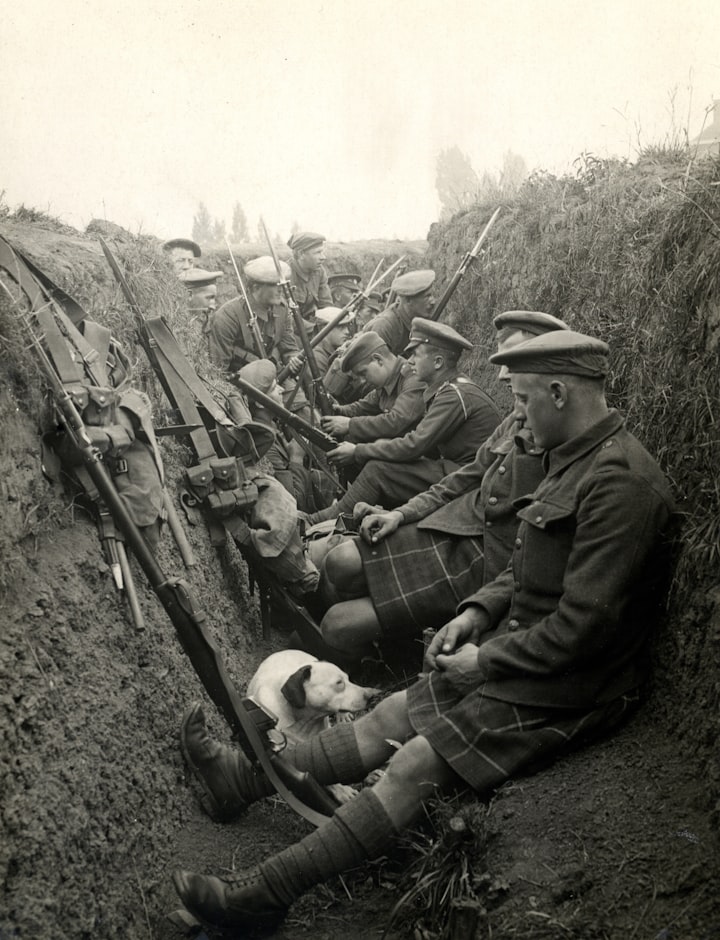THE COUP IN NIGER
A nation in transition

Title: Unrest Unveiled: The Coup in Niger
Chapter 1: A Nation in Transition
Niger, a landlocked West African nation, had been grappling with political and economic challenges for years. The country's struggle for stability was underscored by its delicate transition from military rule to a democratic government. The period leading up to the coup was marked by social discontent, allegations of corruption, and growing frustration among the population.
Chapter 2: The Coup Unfolds
In a swift turn of events, a group of military officers seized control of the government on a fateful day in [Date]. The coup, led by [Key Figures' Names], caught the nation and the international community by surprise. They cited a range of issues, including alleged government mismanagement and electoral irregularities, as reasons for their actions.
Chapter 3: International Reaction
The coup in Niger elicited swift condemnation from the international community. Countries across the globe expressed concern over the suspension of the democratic process and urged a return to civilian rule. The African Union and the Economic Community of West African States (ECOWAS) swiftly suspended Niger's membership and imposed sanctions, adding pressure on the coup leaders to restore constitutional order.
Chapter 4: Domestic Response
Domestically, the coup evoked mixed reactions. While some segments of the population were disillusioned with the previous government's performance, others were alarmed by the military's intervention. Protests erupted in some cities, demanding a return to democratic governance. Civil society organizations and opposition groups voiced their concerns, advocating for a peaceful resolution and respect for the rule of law.
Chapter 5: Transitional Government
In the aftermath of the coup, the military established a transitional government led by [Coup Leader's Name]. The junta promised a short period of governance with the goal of organizing new elections and restoring civilian rule. However, skepticism remained high, as many were wary of the military's intentions and whether they would genuinely relinquish power.
Chapter 6: Path to Stability
The transitional government faced the formidable task of restoring stability and rebuilding public trust. The international community exerted pressure on the junta to adhere to a clear timeline for democratic elections and to engage in an inclusive dialogue with all stakeholders. Meanwhile, the nation's economic challenges and security concerns remained pressing issues that needed immediate attention.
Epilogue: Long Road to Democracy
The coup in Niger served as a stark reminder of the fragile nature of democratic transitions in regions prone to political instability. The nation stood at a crossroads, with the path to stability hinging on the ability of the transitional government to fulfill its promises and guide the country towards credible and transparent elections.
The coup also underscored the importance of international cooperation and diplomacy in responding to such crises. The coming months and years would determine whether Niger could overcome its current challenges, establish democratic governance, and pave the way for a future marked by stability, development, and the rule of law.
Impact of the Niger Coup on its Citizens
Chapter 1: A Disrupted Routine
The coup in Niger sent shockwaves through the daily lives of its citizens. Suddenly, the familiar rhythms of work, school, and community activities were disrupted by uncertainty and unrest. Streets once bustling with commerce now echoed with caution as people grappled with an unfamiliar political landscape.
Chapter 2: Economic Uncertainty
For many Nigeriens, the coup exacerbated economic challenges that were already present. Disruptions in trade, reduced investor confidence, and international sanctions took a toll on livelihoods. Businesses faced uncertainty, leading to layoffs and reduced economic opportunities. Families worried about their financial stability as the cost of living increased and access to essential goods became more challenging.
Chapter 3: Erosion of Rights
As the transitional government took hold, concerns arose about the erosion of civil rights and liberties. Restrictions on freedom of speech, assembly, and media heightened anxieties among citizens. Many worried about expressing their opinions openly, fearing potential repercussions from the new authorities. The uncertain political climate cast a shadow on the exercise of basic rights.
Chapter 4: Education and Future Prospects
The upheaval had a profound impact on education. Schools faced closures and disruptions, affecting students' learning and their prospects for the future. Many students saw their education put on hold, raising concerns about their academic progress and long-term opportunities. The uncertainty of the situation cast doubt on their aspirations and dreams.
Chapter 5: Social Cohesion and Discontent
The coup strained social cohesion as citizens held diverse opinions about the events unfolding. Families, communities, and friends found themselves on different sides of the political divide. Discontent with the transition's legitimacy added to the divide, leaving many feeling isolated and anxious about the nation's future.
Chapter 6: Hope Amidst Challenges
Despite the challenges, Nigeriens displayed remarkable resilience. Communities came together to support each other, providing assistance to those most affected by the turmoil. Grassroots initiatives emerged to address pressing issues such as food security and access to healthcare. Citizens displayed a commitment to safeguarding their rights and voiced their hopes for a return to democratic governance.
Epilogue: Navigating the Road Ahead
The impact of the Niger coup on its citizens was a complex interplay of economic strain, erosion of rights, and social tensions. As the nation navigated through a period of transition, the resilience of its citizens shone through. Despite the uncertainty, many Nigeriens clung to hope for a brighter future, advocating for a return to stability, democratic processes, and the restoration of their rights and freedoms.
About the Creator
Gbenga Matibo Ogungbade
Am a very good writer...





Comments
There are no comments for this story
Be the first to respond and start the conversation.